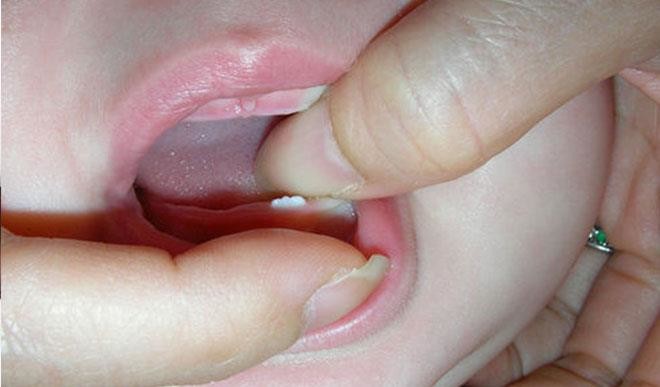
Teeth that a child is born with are known as natal teeth. They occur in about one in every 2,000 to 3,000 babies.
They usually develop in the lower gums and have little root structure meaning they are often wobbly.
They are not usually well formed but can injure the baby’s tongue when it is breastfeeding and can cause a breastfeeding mother pain.
Natal teeth are often removed shortly after a baby is born because if they are loose there is a danger of the child choking on them.
These teeth are not usually associated with any other medical problems, although very rarely they are related to other medical issues, such as Ellis-van Creveld syndrome, a condition that affects bone growth and can lead to breathing difficulties and heart failure.
There is no known explanation for them other than that a child is more dentally developed.
After the natal teeth are removed or fall out, the baby will grow teeth as normal.
Most children have a full set of 20 milk teeth by the time they’re three years old. These teeth will start to fall out around the five year mark, making way for larger adult teeth.
Culled from dailymail.co.uk

 Join Daily Trust WhatsApp Community For Quick Access To News and Happenings Around You.
Join Daily Trust WhatsApp Community For Quick Access To News and Happenings Around You.


